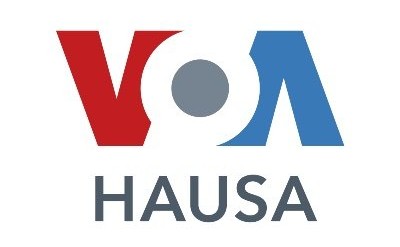VOA Hausa Goes Silent in Nigeria, Ghana After US Budget Cuts

Millions of Hausa-speaking listeners across Nigeria, Ghana, Cameroon, and Niger have been cut off from one of their most trusted international news sources as the Voice of America (VOA) Hausa service abruptly went off air following U.S. government budget cuts, Daily Trust reports.
When regular listeners in northern Nigeria tuned in last month and found only music playing where news once aired, panic quickly spread. “Was there a coup in the U.S.?” one alarmed listener asked, according to VOA journalist Babangida Jibrin. The unexpected silence sparked confusion and fear, recalling past times when military takeovers would seize communication lines.
The shutdown, rooted in deep budget cuts spearheaded by the administration of former President Donald Trump during his second term, has left a painful void in the region’s media landscape. The Hausa-language service, established in 1979, was widely regarded as a reliable, professional alternative in an environment where local outlets are often perceived as aligned with political or business interests.
“It’s really, really a shame,” said Sadibou Marong, West Africa chief for Reporters Without Borders. He emphasized VOA’s vital role in covering sensitive issues — from armed insurgencies in Nigeria and Niger to military pressure on journalists — stories often underreported or suppressed by local media.
For many rural listeners in West Africa, where print media is limited and internet access remains unreliable, VOA Hausa was a lifeline. “People are now cut off from news, especially international news,” lamented Moussa Jaharou from southern Niger, a region plagued by conflict and instability.
Beyond breaking news, the service also provided critical health programming, such as segments on HIV and malaria — especially relevant as the rainy season begins. The loss of such information could have serious consequences for vulnerable communities.
Veteran listener Muhammad Mukhtar, who inherited his 6:00 a.m. listening habit from his father, voiced concern not just over losing daily news, but also the in-depth programming that VOA Hausa uniquely offered. “I still have not come to terms with this shocking reality,” said the 50-year-old.
Alhassan Bala, a laid-off VOA reporter, underscored the station’s commitment to “solutions-based journalism.” He cited past stories that led to government investigations, including one exposing dangerous heavy metal contamination affecting children in Zamfara State. “I just said, ‘Oh my God.’ This is bad,” Bala said when he heard the news. At the time, he was working on a story for his fact-checking platform, Alkalanci. He believes that work is now more important than ever.
The closure’s impact is even more painful considering the region’s strong radio culture, entrenched since 1944 with the arrival of broadcasting in Kano. With VOA’s syndication across local stations, it had managed to reach millions in otherwise hard-to-reach rural areas.
For Jibrin and other journalists, the dismantling of the service is personal and heartbreaking. He recalled facing harassment under the brutal regime of Sani Abacha in the 1990s, when VOA reporters were accused of being CIA agents. Fighting back tears, he said, “There are places we used to go where they would address us as CIA agents… So now who will have the last laugh?”
The shutdown of VOA Hausa coincides with a broader trend of media suppression in the region. Radio France Internationale (RFI), including its Hausa service, has been banned in Niger, while the BBC recently faced a three-month suspension there.
While other Hausa-language stations remain, none match VOA’s international scope, in-depth reporting, and trusted voice. For communities already isolated by geography and conflict, the silence from Washington speaks volumes.
The post VOA Hausa Goes Silent in Nigeria, Ghana After US Budget Cuts appeared first on Kano Times.





